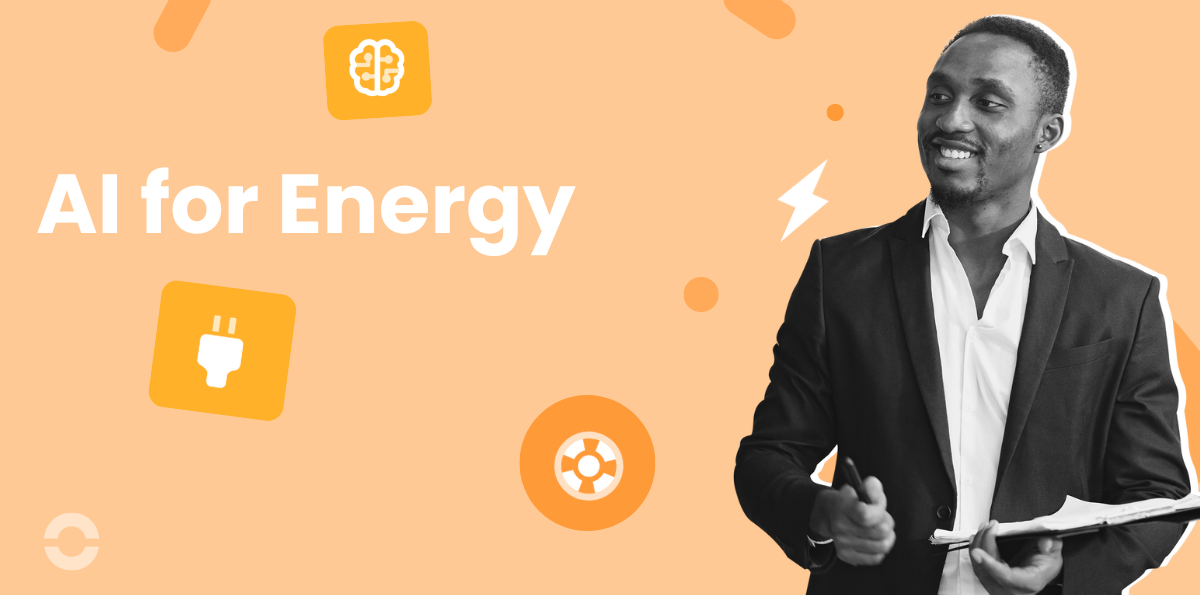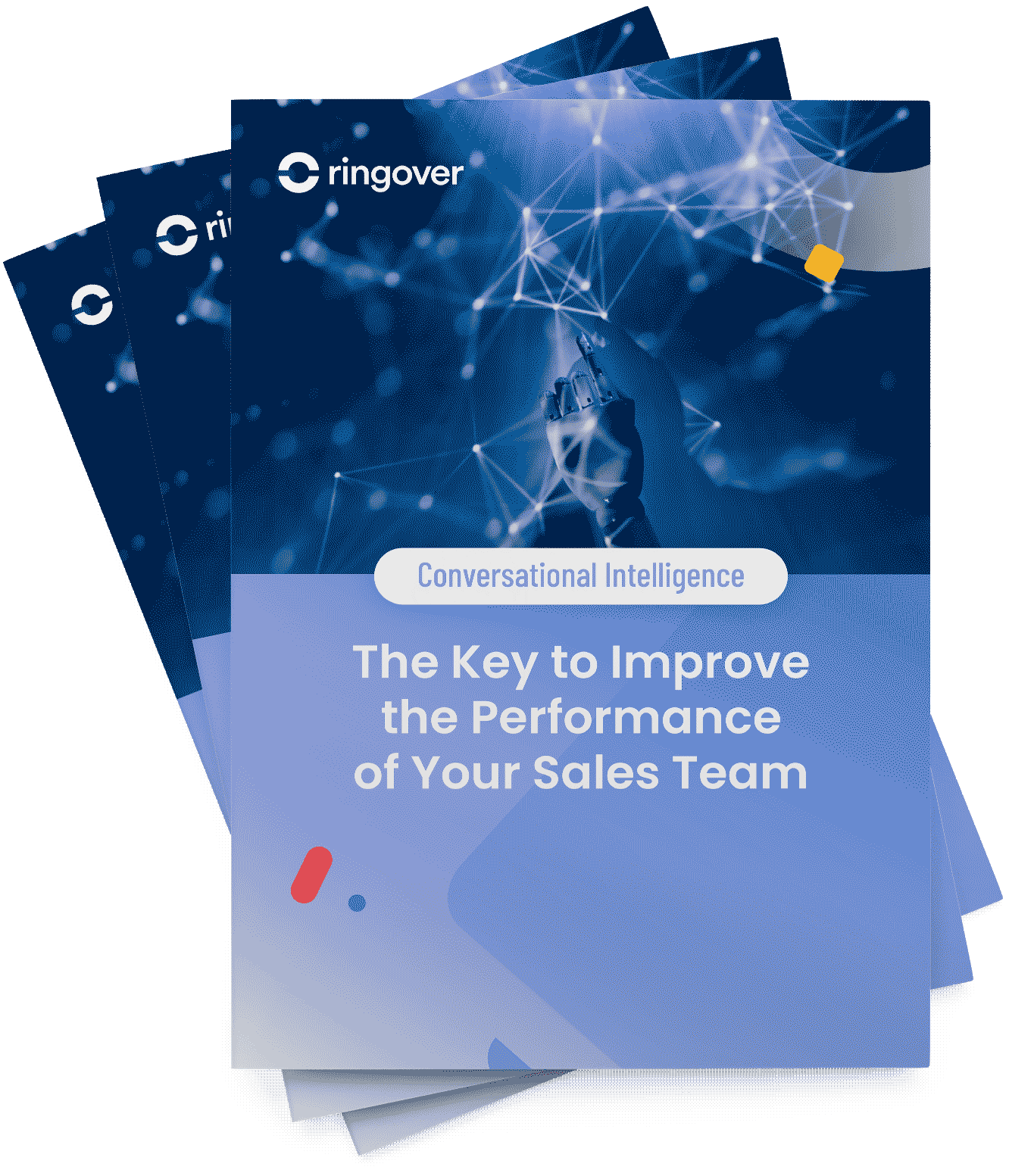Summary
Artificial intelligence (AI) is steadily transforming numerous industries, and the energy sector is no exception. For all companies in this field, AI is emerging as a highly promising tool for the years to come, offering value across all operational levels. In this article, we aim to answer the following key questions:
- What exactly is AI in the energy sector?
- How does AI enable innovation?
- Beyond energy management and environmental concerns, how can professionals benefit from it?
- Does this impact also benefit end customers?
What Is AI in the Energy Sector?
AI in the energy sector draws on a variety of disciplines, including Machine Learning, Deep Learning, and generative models, which—when properly integrated—completely transform how energy data is collected, interpreted, and utilised.
These technologies go far beyond simple data processing. With their help, it becomes possible to:
- Identify patterns invisible to the naked eye
- Anticipate changes in energy demand
Prevent certain failures with a level of responsiveness that, until recently, belonged to the realm of science fiction—or pure fantasy.
How Does AI Enable Innovation?
In the most advanced systems, as data volumes grow, AI tools continuously refine their predictions and reshape decision-making processes—from supply to distribution.
A concrete example? Predictive maintenance. By continuously analysing signals emitted by equipment, AI can detect early warning signs of wear or malfunction. Interventions are no longer scheduled based on rigid calendars, but on subtle, often imperceptible signals that indicate an imminent issue. This kind of responsiveness not only reduces service interruptions but also significantly cuts emergency maintenance costs.
In short, these tools improve the understanding and management of energy resources by analysing large volumes of data. This capability is essential for identifying patterns and forecasting trends with far greater accuracy and consistency than traditional methods.
Use Cases of AI in the Energy Sector
AI is greasing the wheels of the energy industry with striking efficiency. While some still view it merely as an optimisation lever, the reality is much richer, revealing highly practical use cases:
Smart Adjustment of Renewable Installations
In wind and solar farms, optimisation no longer depends solely on component quality or geographic exposure. It now hinges on how precisely systems react to changing conditions. By combining weather data with learning models, AI dynamically adjusts blade angles or panel orientation.
In an unpredictable environment, this can mean the difference between stable output and significant losses.
Anticipated, Adjusted, Controlled Demand
Forecasting energy consumption isn't new—but the level of granularity AI allows is. By incorporating behavioural data, weather forecasts, upcoming events,and even economic cycles, AI refines predictions. It suggests, adapts,and responds.
Adjusting production flows becomes smooth, almost intuitive. And for the end user? Personalised recommendations that positively impact their bill.
Benefits of AI in the Energy Sector
Artificial intelligence is a powerful driver of transformation in the energy sector, with wide-ranging effects. Let's explore some of the key benefits:
More Efficient Production and Distribution
AI's ability to process vast amounts of data enables more precise energy flow management. Operators can uncover inefficiencies that would otherwise go unnoticed, adjust production levels based on real-time demand, and anticipate consumption peaks with far more accuracy than traditional approaches.
This heightened control limits waste, cuts extra costs, and optimises every link in the chain—from production to distribution.
Predictive Maintenance: Anticipate to Act Better
As mentioned earlier, maintenance is entering a new era. By leveraging signals from sensors embedded in equipment (turbines, transformers, batteries, solar panels, etc.), AI creates maintenance cycles based not on fixed deadlines, but on concrete performance and wear indicators.
This kind of conditional maintenance reduces unexpected breakdowns, eliminates the need for emergency fixes, and ultimately extends the lifespan of infrastructure.
Smarter Consumption for End Customers
To limit AI's benefits to internal operations would be to overlook its impact on customer relationships—whether individuals, businesses, or public entities. Thanks to more precise consumption analysis, providers can now offer pricing models that are fairer, more personalised, and more flexible.
Some pricing adjustments, once impossible without human intervention, now happen automatically and in real time. This flexibility—once reserved for large accounts—is now within reach for many more.
A Smoother, More Responsive Customer Experience
AI-powered tools (intelligent chatbots, voice assistants, omnichannel request management systems) streamline communication between energy companies and their customers. Responses are faster, more relevant, and common issues (billing, usage, outages, etc.) are resolved with minimal friction.
When well-designed, this kind of digital interaction builds trust, reduces support centre workloads, and boosts overall satisfaction. Solutions like Ringover's AI assistant help energy sector businesses move toward this type of service optimisation—we'll explore this further later in the article.
Easier Integration of Renewable Energy
AI is also a catalyst for the energy transition. It simplifies the integration of renewable energy by better managing the intermittency of solar and wind sources.
Production adjustments are driven by real-time weather forecasts, helping to ensure a stable energy supply despite volatile inputs. This service continuity, even in a constantly evolving energy mix, is a major strategic advancement.
Strengthened Security and Network Resilience
Security is another critical dimension. AI can detect anomalies, suspicious behaviour, and even fraud attempts. It also plays a key role in reinforcing the cybersecurity of energy networks, where the sophistication of modern attacks demands constant vigilance and rapid response.
A resilient, well-protected infrastructure ensures continuity and is a vital trust factor in a market where reliability is non-negotiable.
AI Solutions Tailored to Energy Market Players
In a sector where operational, environmental, and human challenges intersect at every level, high-quality customer relationships and smooth internal communication are essential. Ringover, a specialist in AI-enhanced cloud communications, offers a suite of solutions designed to help energy companies boost both operational efficiency and customer experience.
Tools That Enable Smoother, More Proactive Customer Relationships
Whether it's incident management, technical support, or commercial consulting, interactions between your teams and your clients must be seamless, relevant, and precise.
That's where Ringover's native AI features come in: automatic call transcription, real-time summaries, transcript translation...
An Independent AI Assistant That Guides Your Customers and Supports Your Teams
Ringover's AI assistant is not your average chatbot. It's designed to engage intelligently with visitors on your website who are looking for product information or customer support.
Accessible in Q&A, Ask, and Search modes, the AI assistant provides instant, round-the-clock answers to your customers' or prospects' common questions—without ever tiring. By reducing up to 80% of traditional inquiries, it frees up your support teams to focus on more complex issues. Its generative intelligence draws from both your internal data and external knowledge bases to ensure highly relevant answers.
It's worth noting that the AI assistant is available without a Ringover VoIP software—ideal for customer service teams already equipped with a VoIP phone system or looking to test this innovative solution without needing to switch platforms.
Empower: Train, Evaluate, and Develop Your Teams
Mastering both the technical and commercial challenges in the energy sector requires continuous training—especially for customer advisors and sales teams.
With Empower, Ringover goes a step further in analysing interactions: the tool identifies areas of improvement for each team member. Based on detailed conversation analysis (tone, pace, structure, engagement, semantics), managers can deliver targeted feedback and support meaningful skill development.
A strategic asset for companies aiming to professionalise customer relationships while accelerating the sales cycle.
An Integrated Ecosystem for Seamless Communication
The energy sector often requires juggling multiple platforms via integrations, combining CRM, helpdesk, ERP, project management tools, and more. Ringover simplifies this complexity with over 100 native integrations. Whether you use Salesforce, HubSpot, Zoho, Freshdesk, or other market tools, communication becomes centralised—and effortlessly so.
Data syncs automatically, history is just a click away, and your teams save precious time.
Key Takeaways
Thanks to AI capabilities, energy demand can be forecasted, renewable energy production optimised, and both electrical grids and microgrids managed more intelligently.
Beyond technical innovation, the entire value chain is evolving. From production to customer service, every interaction and decision can now be powered by better-leveraged, more deeply analysed data.
Companies in the sector that integrate these tools smartly, seamlessly, and in line with their specific challenges will gain agility, efficiency, and competitiveness.
With its AI-enhanced conversational solutions, Ringover is already supporting many energy sector players in this transformation—and this is just the beginning. Want to join this new era? Contact our experts and request a personalised demo.
Published on July 4, 2025.


